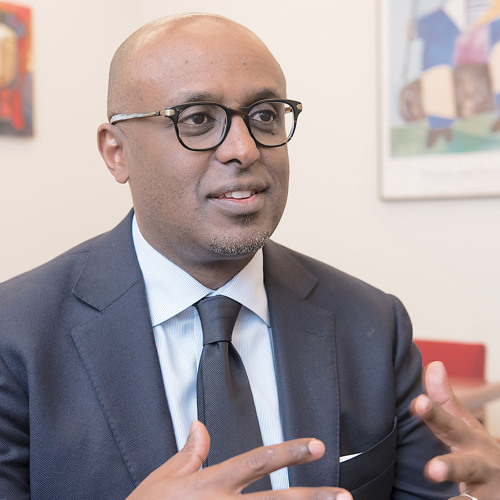

The International Monetary Fund (IMF) says it will not interfere in the Nigeria’s government handling of its fuel subsidy policies.
It however expressed disapproval of subsidy policies for certain commodities in Nigeria, Kenya and other countries in Sub-Saharan Africa, maintaining that it should be scrapped.
Director, African Department of the IMF, Abebe Selassie, gave the position at the just concluded World Bank and IMF Spring meetings in Washington DC, USA.
He spoke to journalists at the forum against the recent development in which the Federal Government secured a $800 million World Bank facility as a fuel subsidy removal palliative.
Selassie said, ‘‘The benefits of such subsidies tend to accrue to richer segments of the society, and in a world where we still have elevated levels of poverty and with levels of development challenges, I’m not sure that this is the best use of resources.
READ ALSO:
‘‘But then we leave it up to the governments the choices of whether to sustain those subsidy policies or remove them.
“However, what we asked them to do, and what is important is that the cost of this fuel subsidy is rather than being left as off-balance sheet it should be included in the regular fiscal appropriation process, so that the trade-offs that the government is making is clear and transparent.
‘‘Now, how governments do this, the extent of the fuel subsidies, of course also varies with global international market prices.
‘‘You know that whether to subsidize or not and to what extent, obviously is a very deeply domestic and deeply political issue. If governments want to do that, that’s fine. But we think it’s sub-optimal, as I said, for reasons I explained earlier that the benefits of subsidies tend to accrue to richer households.
‘‘We know, of course, in Nigeria that fuel subsidies have eaten up tremendous, tremendous amount of resources, at the same time that the government doesn’t have resources to address the huge investment needs, from health to education, to infrastructure. But this is a choice for Nigerian government and Nigerian civil societies to make.
‘‘We’ve also heard the discussion that’s going on the debate that’s going on, on whether this is ideal. We try and inform that debate with statistics and with practices elsewhere, but I think that’s our role.
‘‘So, for a country like Nigeria also, you know, the future trajectory of its economy is going to depend on a whole host of variables, or reforms that the government pursues and how effectively it uses the resources and the oil price trajectory.’
Already, the FG has announced that petrol subsidy will be removed from May 29 this year as a major assignment by the incoming administration.
The labour has vowed to frustrate the move.
Lanre Shittu Motors to endow Automobile Department of Lagos Technical College Lanre Shittu Motors has…
Mother, daughter who stole ponmo, stock fish in Ogun jailed six months A Magistrates’ Court in Abeokuta, Ogun…
Ex-Rivers HoS wife cries for help over husband’s safety The wife of the immediate past Rivers…
Fubara reacts as Ex-HOS, Nwaeke accuses him of bombing oil pipelines, Rivers Assembly Suspended Governor of Rivers…
Natasha: Emmanuel Uduaghan threatens to sue Senator Nwaebonyi Senator Onyekachi Nwaebonyi, the Deputy Chief Whip of…
Five shiites killed in Abuja during clash with soldiers A deadly confrontation between members of the Islamic…